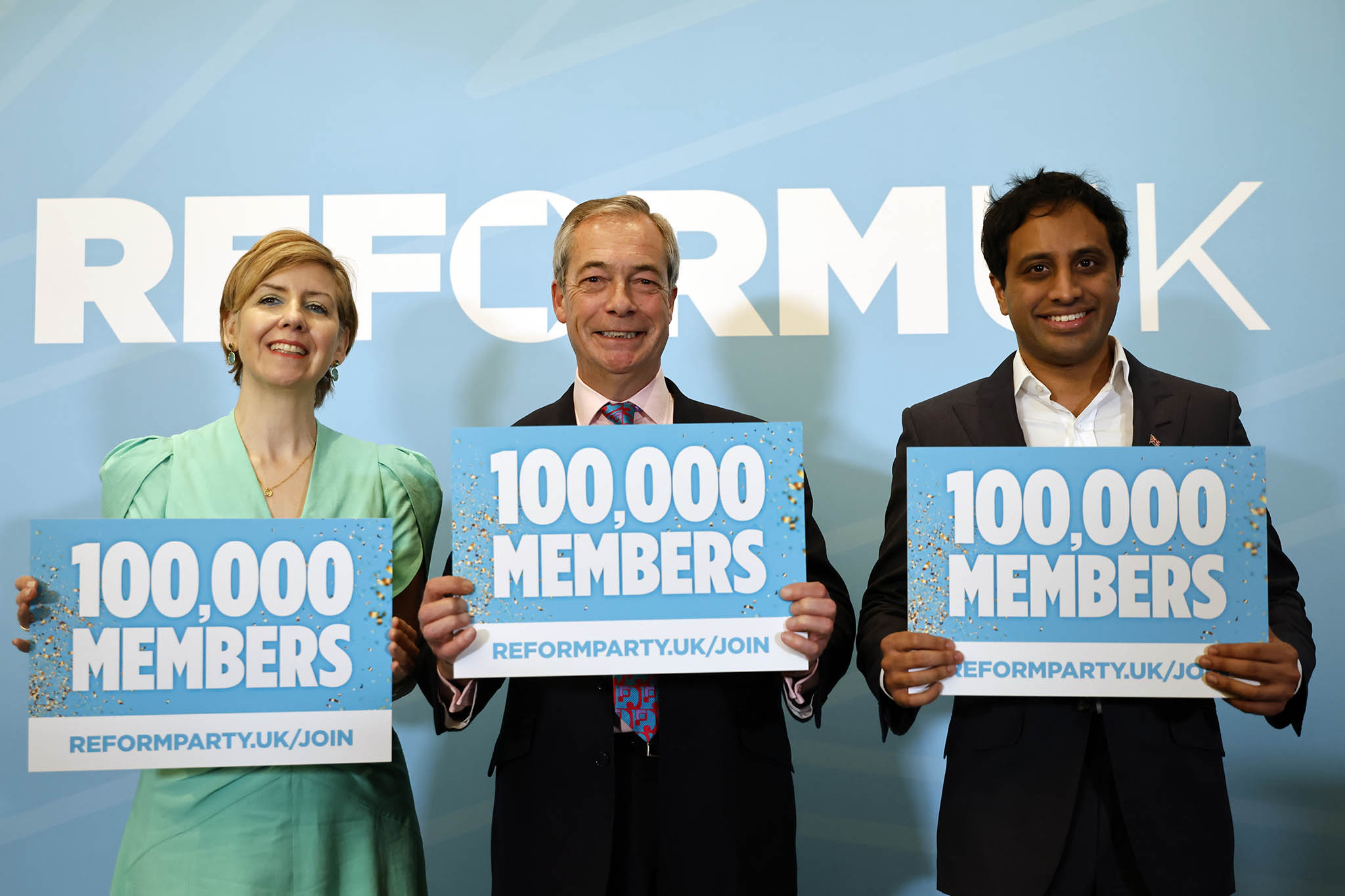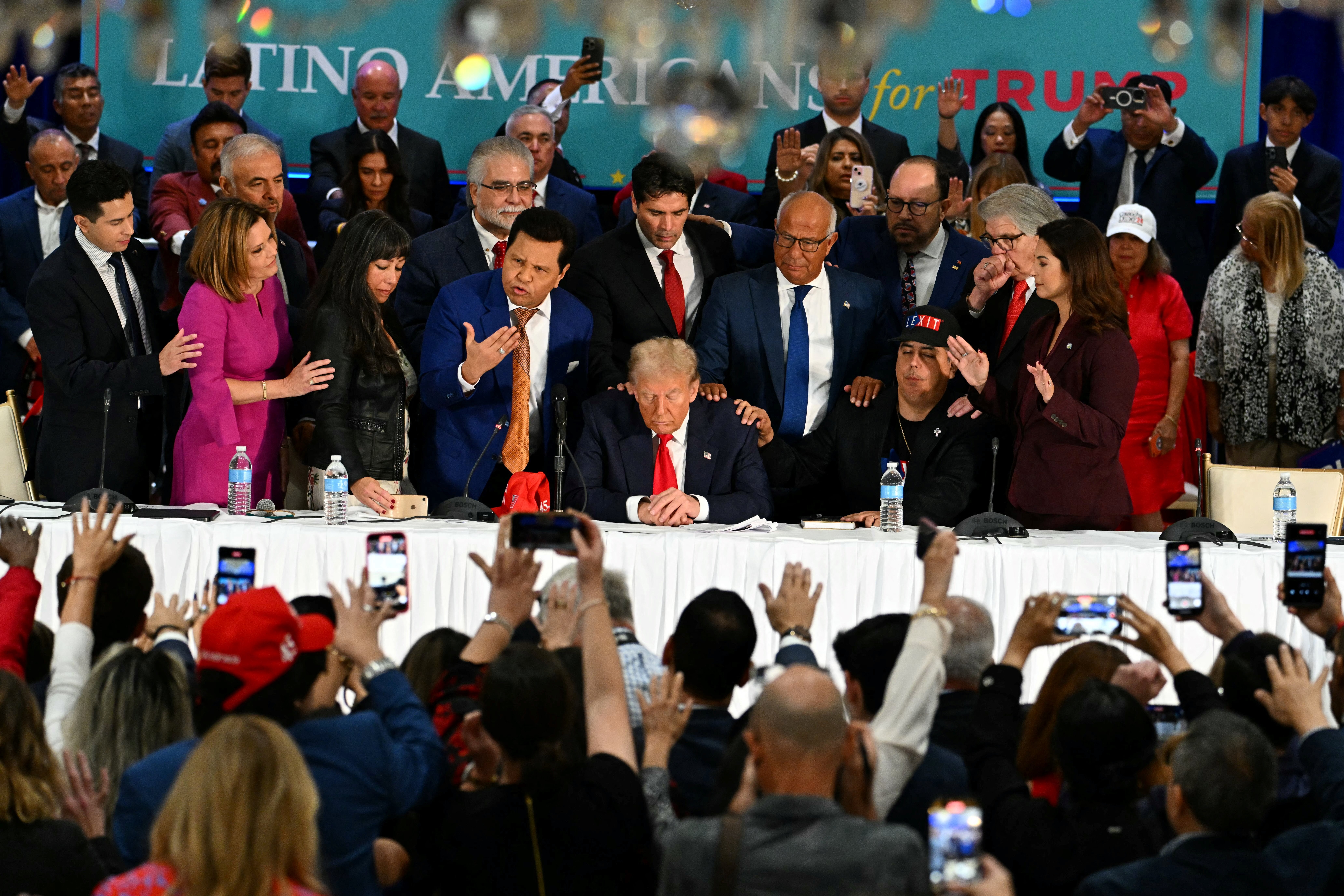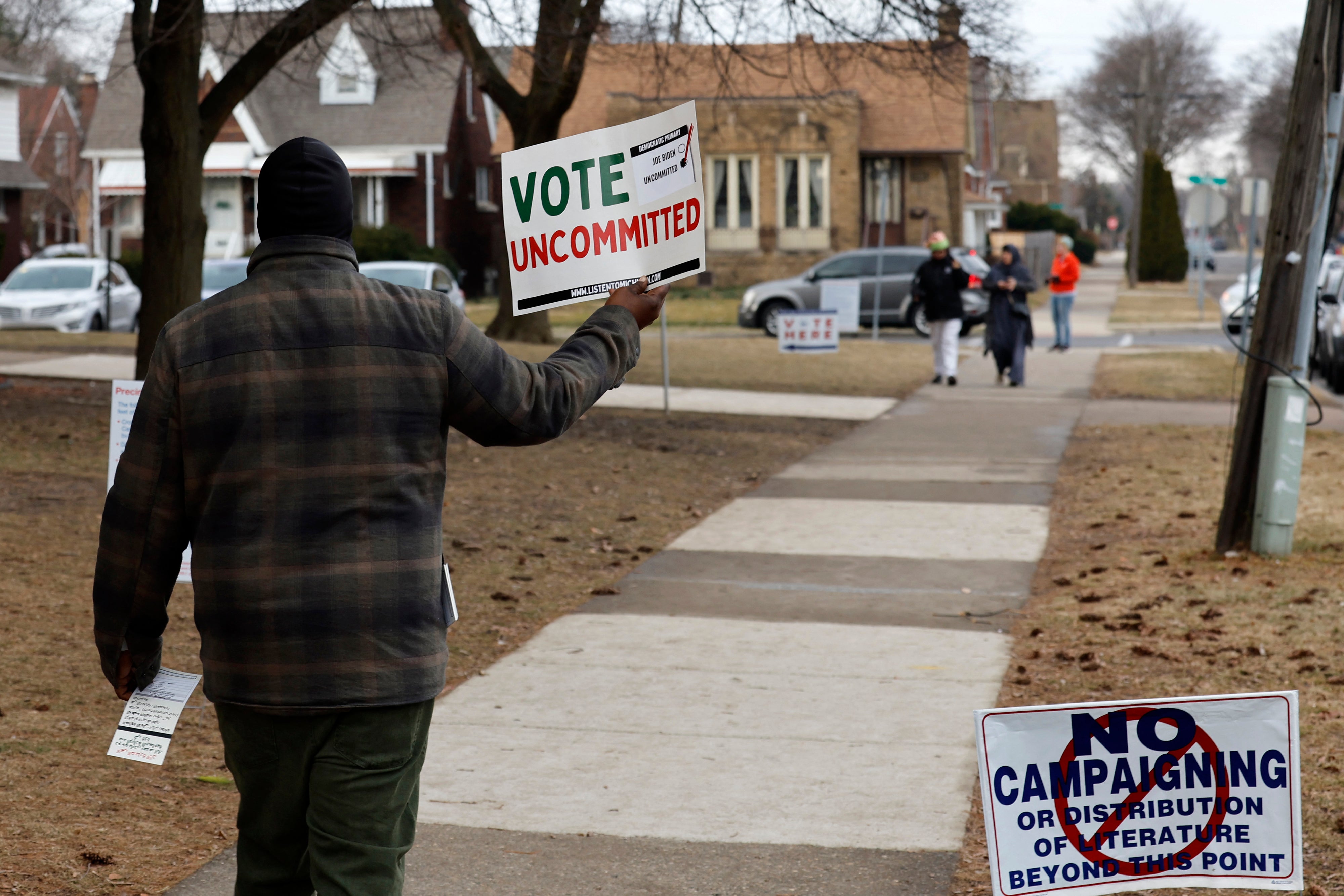It’s been well publicised that 2024 was a big year for elections, with billions of people in at least 60 countries going to the polls.
The year started with votes in the world’s largest country, India, and is ending in the wake of an annulled election in Romania over accusations of Russian interference.
As a data correspondent, I spent most of this year covering what were arguably the two most influential polls: the UK general election in July, and the US presidential election in November.
From an outside glance, the two electoral events had little in common; not least because Sir Keir Starmer and President-elect Donald Trump are far apart in most aspects of their character.
In the UK, Labour won by a landslide; a majority of 156 seats, and a 10 per cent majority in national vote share. In the US, Trump dominated the electoral college, but in the end won just a 1.6 per cent national majority over Kamala Harris.
Indeed, these elections shared some key similarities which may point to trends in the future of global politics, particularly in the digital age.
The toolmaker and the Apprentice
Before comparing the common characteristics of the UK and US elections, we must acknowledge that the choice of leaders is what largely sets them apart.
This summer, Brits ushered in a moderate left-wing government led by a man who, for all his undeniable achievements, was suggested to be “too boring” to be Prime Minister.
The picture across the pond is almost a total opposite. Trump was elected to a second term – a right-wing candidate who is credited with pushing Republicans further right, and whose actions over the years can be described as many things but not boring.

Their backgrounds are also a point of difference. Sir Keir proudly waved his working-class roots as the son of a toolmaker, who diligently climbed the legal ladder and reached the head of the Crown Prosecution Service.
Famously, Trump received “a small loan of a million dollars” from his own mogul father, which the president-elect developed into a business career spanning from a real estate empire, to hosting The Apprentice, and the short-lived Trump University.
Both individuals, of distinct backgrounds and skills, were chosen by their electorate to be leaders. One embodies the rule of law, while the other rejects (or indeed, bulldozes) the institutional rulebook.
To some degree at least, both reflect the values of their electorate.
The political right and third-parties
On both sides of the pond, this year’s elections represented some degree of a win for the right. In the US, Republicans swept the Executive, Congress and Senate. In the UK, the Conservatives’ fall from grace made way for a “new” right.
Men have typically been considered a key support base for Trump, but this year, this extended to the younger generation too.
Nearly half of men under aged 18-30 voted for Trump, according to AP VoteCast; up from a third in 2020.

Yet for some time, Trump was not the only option available to more Conservative voters. Until mid-July, Robert F Kennedy Jr. was performing unprecedentedly well in the polls, hovering between 9 and 10 per cent of the vote.
When Kamala Harris entered the race, his polling popularity split in half, but RFK Jr was still maintaining a healthy 5 per cent of vote intention. With the election considered to be on a knife’s edge, this percentage could have made the difference for either major candidate.
His supporters were made up of both traditionally liberal and conservative voters, who may have been united by a frustration with the status quo. But ultimately, RFK Jr endorsed Trump, aligning himself with the political right – and possibly securing himself a position as Health Secretary.
Meanwhile in the UK, left-wing Labour won by a landslide, with a crippling historic defeat for the Tories at just 121 seats in Parliament.
But all was not lost for the political right. Nigel Farage’s right-wing party Reform UK also broke through the fray by winning five seats, above most expectations.

Overall, men also swung farther to Reform (by +15 per cent) than women (+11 per cent); with wins among all male age groups, from men under 24 (9 per cent) to over 55s+ (20 per cent), according to the Ipsos exit poll.
More pressingly, Reform won 14.3 per cent of the national vote share; just a few points behind the Tories (23.8 per cent).
Whether this momentum can be sustained into the next election remains to be seen. This could, however, set the stage for a new form of the UK’s political right, which has been dominated by the Conservatives for over a century.
Both Labour and Democrats lost minority voters
Labour in the UK and the Democrats in the US waged very different campaigns; and namely, Sir Keir’s party won the election, while Ms Harris’ lost.
Yet both major left-wing parties lost support from one of their key demographics: minority voters.
In the UK, the Independent revealed that Labour lost nearly a third of its existing support from Black and Asian voters compared to the 2019 election.
The ethnic minority Labour vote dropped from 64 per cent to 46 per cent; despite Labour’s overall success.
In fact, +13 per cent more ethnic minority voters chose Independent candidates this year, compared to a boost of just + 2 per cent among white voters.
Jabeer Butt, chief executive of the Race Equality Foundation, pointed to a weak stance on the war in Gaza and Labour’s internal race rows as a reason for this disillusionment.
“It should concern Labour that they have not only lost votes from Asian communities, but they have lost seats [to Independents],” he told the Independent.

In the United States, Democrats lost favour with the core Latino voter group, leading to a nearly even split between Harris-Trump support.
NBC’s exit polls showed that Harris won 53 per cent of the Latino vote to Trump’s 45 per cent; a far cry from Biden’s 33-point lead among Latinos in 2020.
Though the extent of concerns about a substantial shift to the right among Black voters appeared to be overblown, 1 in 5 Black men did vote for Trump (an increase of 2 per cent from 2020, and up 7 per cent from 2016).
This specifically represented a growing divide between Black women (7 per cent of whom voted for Trump) and Black men; with some commentators arguing that a shift to the right among Black men was inevitable, due to culturally conservative and economically liberal traits.

Gaza also played a part in the US election. The Uncommitted campaign urged voters to withhold their votes from the Democrats, as an act of protest against Biden’s approach to the war in Gaza.
While it is impossible to say how many non-votes were decided for this reason, there is one place it certainly made a difference.
Dearborn, Michigan was considered a Democratic stronghold with a 55 per cent Arab population. This year, Trump won the city by 2,500 votes; the first time a Republican has won since 2000.
Harris lost a third of the Dearborn vote from Joe Biden in 2020 (down to 36 per cent from 69 per cent), while third-party candidate Jill Stein took 15 per cent of the vote in the city.
In both the UK and US, then, Labour and Democrats lost favour with minority voters, for a variety of reasons. Both parties had relied on non-white voters as reliable supporters; but this may not be an easy win in future elections.











